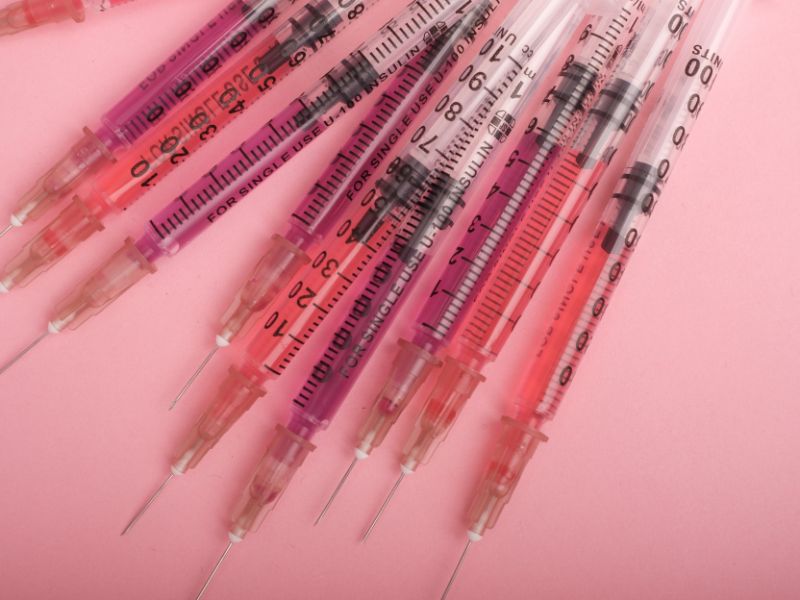How Mold Exposure Can Trigger Psychiatric Symptoms
By now, many of you know the health issues that mold exposure can cause. Mold-related illnesses include hormonal imbalances, autoimmune disease, chronic inflammation, and more. In addition mold can trigger psychiatric symptoms, such as depression, anxiety, attention problems, brain fog, and insomnia.
Mold is a biotoxin, and it releases toxic gas and spores into the air. When the toxins enter your body, via skin or air, the toxic gases cause a disturbance in many organs, including your brain.
Mold toxicity can manifest in so many different and diverse symptoms, that it is frequently misdiagnosed. It can even exacerbate certain conditions like chronic fatigue, histamine intolerance, leaky gut, and multiple sclerosis. This is due to a chronic inflammatory response in the body when it is exposed to a biotoxin like mold called Chronic Inflammatory Resonse Syndrome (SIRS).
There are many physical of mold toxicity, like:
- Fatigue
- Weakness
- Aches
- Muscle Cramps
- Unusual Pain
- Ice Pick Pain
- Headache
- Light Sensitivity
- Red Eyes
- Blurred Vision
- Metallic Taste
- Weight Gain
- Tearing
- Sinus Problems
- Cough
- Shortness of Breath
- Abdominal Pain
- Diarrhea
- Joint Pain
- Morning Stiffness
- Numbness
- Static Shocks
- Tingling Vertigo
- Weight Loss
- Skin Sensitivity
- Appetite Swings
- Sweats (especially night sweats)
- Temperature Regulation or Dysregulation Problems
- Excessive Thirst
- Increased Urination
- Tremors
However, mold exposure can trigger psychiatric symptoms and other brain-related issues (1):
- Brain inflammation in the hippocampus, the area of the brain that governs memory, learning, and the sleep-wake cycle
- Decreased neurogenesis, or the formation of new brain cells
- Impaired memory
- Increased sensitivity to pain
- Increased anxiety
- Decreased Learning of New Knowledge
- Confusion
- Disorientation
- Memory Issues
- Focus/Concentration Issues
- Panic Attacks
When mold toxicity occurs, many of the above symptoms and dysfunctions are triggered. Mold can have such a powerful impact on our sense of well-being that many patients of mine have even expressed a feeling of “craziness.”
Unfortunately, there is a very good chance that anyone presenting with these symptoms will never have mold considered as part of the differential diagnosis. It is simply not on the radar of the vast majority of allopathic physicians.
Why do you have mold-exposure psychiatric symptoms and your spouse or children don’t?
25% of the population that is susceptible to biotoxins. This means that a family can be living in the same house with mold growth, but only one family member will become ill.
Mold is a sometimes silent and yet formidable trigger of symptoms. It is lurking in our homes, offices, cars, washing machines, and bathrooms without notice. It is quite literally a silent but deadly killer of our immune system and trigger of brain-related issues. If you have been exposed, you must detox mold from your body as soon as possible.
How can you find out if you have been exposed to mold? And, how can you detox mold from your body?
Learn how to Test and Detox Mold From Your Body Here.
If you suspect you have been or are exposed to toxic mold, get tested as soon as you can. Fill out the form below or call Tringali Vibrant Wellness today to book a consultation: 561-283-1166
– Elizabeth Tringali, PA-C
Founder Tringali Vibrant Health
Sources:
https://pubmed.ncbi.nlm.nih.gov/29880330/
https://www.cdc.gov/mold/dampness_facts.htm
Our Mold Detox Supplement Stack:
Vibrant Mold Detox
SUPPLEMENT STACK
This powerful combination of supplements is designed to support your body in detoxifying and recovering from mold exposure. Each product in this stack plays a specific role in eliminating toxins, balancing the gut, and restoring optimal health.










